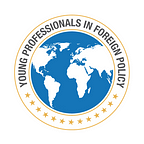America: Living Out Trump’s Reality
By Colin Wolfgang
“In less than two years, my administration has accomplished more than almost any administration in the history of our country.”
So began President Trump’s address to the United Nations on September 25, which was understandably met with muffled laughter from the world leaders and diplomats in the audience.
Overall, the president’s address was nothing but a long list of grievances aimed at international institutions and countries alike, interspersed with proclamations of American success domestically. It was anti-trade, anti-immigration, anti-Socialism, and more broadly, anti-globalism. Although nothing new for President Trump, the speech was a dark and pessimistic view of the world today that seemed to justify the belief that America is on its own and must do whatever it takes to survive — even if that means spurning long-time allies and embracing long-time enemies.
Above all, however, the speech was a glimpse into the alternate reality that President Trump believes in: America’s tremendous comeback under his watch after decades of poor governance, the financially crippling effect free trade agreements have had on the U.S., and the belief that the country is far better off barring any immigrants from coming and stealing American jobs. And while it may be clear — as it was to the General Assembly — that these notions are indeed an alternate reality and that the rest of the world is going about business as usual, the fact remains that under President Trump’s leadership, America is stuck with the reality he chooses, for better or for worse.
This will leave America on the outside looking in as other countries continue to move forward. On trade, for example, President Trump’s trade war with China and bellicosity towards Europe and our North American neighbors has forced other countries to move forward with their own free trade agreements. The Trans-Pacific Partnership, which President Trump withdrew the U.S. from immediately upon taking office, has simply renamed itself and moved on. The South American Mercosur may soon forge trade ties with the EU. And the EU has likewise begun talks with Australia and New Zealand on free trade agreement. These all leave the U.S. out in the cold, potentially creating an isolating effect for American sectors — like agriculture, automobiles, and pharmaceuticals — that rely on exporting goods.
President Trump’s announcement that American foreign aid would be reevaluated, and America would provide aid solely to “friends” is equally dangerous. It is shortsighted to view foreign aid as nothing more than a giveaway to countries that cannot take care of themselves; in Africa, President Obama’s Power Africa plan paved the way for natural gas facilities that eventually may rely on the large amount of natural gas produced in the United States.
Providing aid also improves security issues. A study from Foreign Policy shows that U.S. investment in health in sub-Saharan Africa was a key factor in stabilizing nations that otherwise could serve as breeding grounds for terrorist organizations. And as countries such as China ramp up foreign investment, America’s “soft power” abroad will become less and less potent.
Immigration is unfairly under attack from President Trump as well — underscored by the fact that the U.S. was one of just two countries that rejected the Global Compact for Migration during the UN General Assembly (Hungary was the other). From the assault on DACA to the separation of families at the border, the message to families and individuals attempting to immigrate to the U.S. is clear: you are not welcome. Yet this ignores a number of ways that immigration, and immigrants themselves, are critical to the prosperity of the country. Immigration helps propel and sustain the economic growth the U.S. relies upon — and that President Trump routinely boasts about. When population growth slows, so does productivity. Immigration can fix that. Brookings likewise points out that immigration can actually increase wages, which should not be overlooked.
Surrounded by world leaders and diplomats, President Trump demonstrated clearly that he indeed lives in an alternate reality. In his eyes, America has been backed into a corner after years of abuse, and now must fight vigorously to sustain its achievements and regain the prosperity that’s been missing for decades. He is thoroughly convinced of this reality. And while much of U.S. and the rest of the world acknowledges this, the fact remains that under his leadership, America is bound to President Trump and the policies and ideals he espouses and pursues.
This will have ramifications. By starting unnecessary trade wars, curtailing foreign aid, and enforcing a strict immigration policy, the U.S. not only cedes its hegemonic stature to countries like China, but also risks dampening the domestic economy over time. The “Make America Great Again” slogan was rhetorically useful for the presidential election in 2016, but after Tuesday’s speech, it is now evident it was nothing more than an empty promise filled with irony.
Colin Wolfgang is a public affairs and communications consultant in the New York City area and Communications Director of the New York chapter of Young Professionals in Foreign Policy. He holds a Bachelor’s degree in international relations from Boston University.
